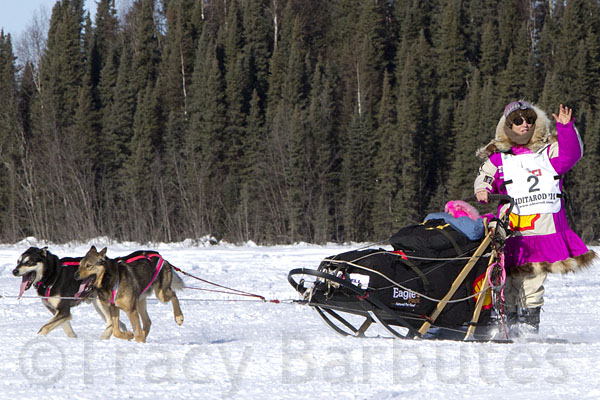Diloola Erickson
Phys 212 F07 Spring 2015
Dog Mushing &
Physics
A History of Dog Mushing
There is archaeological evidence that suggests that dogs and
humans in the Arctic regions have had a relationship for at
least 4,000 years. The Canadian Indian and Inuit were the
first peoples to use huskies in an interdependent
relationship. Dog teams have been used throughout history from
exploring and charting the Canadian panorama, used by the
Royal Canadian Mounted Police in 1873, in the Yukon gold
discovery of 1898, and in the first exploration of the Arctic
and Antarctic polar regions.
Before the invention of the fish wheel, which made it
possible to feed a large dog team, most men maintained a small
team of two to three dogs. During these times the musher would
often run in front of the sled with the dogs rather than on
the runners of the sled in the back.
It was not until the past couple hundred years that sled dog
racing became a sport, before then it was used strictly for
travel and work. In 1850 the first documented sled dog race,
the remarkable race, was held and ran from Winnipeg, Manitoba
to St. Paul, Minnesota. The movie “Iron Will” is about the
1917 remarkable race when Alberta Campbell from Pas, Manitoba
won. 1917 was also the start of the first established sled dog
race in the lower 48, which was held in Ashton, Idaho. Then in
1925 the “Great Race of Mercy” took place when 20 mushers and
over 150 dogs worked together to deliver medicine to the town
of Nome to help fight and outbreak of diphtheria. This event
is what inspired the famous Iditarod race.

Image from:
http://www.refinery.tv/top-10-dogs-from-film-tv/
 Image from:
Image from:
http://tracybarbutes.com/alaskas-iditarod-sled-dog-race-the-mushers/